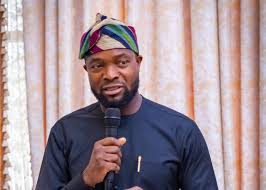Minister of Communications, Innovation and Digital Economy, Bosun Tijani has suggested a tariff increase of less than 60 percent by telecommunication companies.
While acknowledging the demands from telecom operators for a 100 per cent tariff hike, citing rising operational costs and inflation, the Minister stated that such an sharp increase would be detrimental to Nigerians.
Tijani who made the disclosure during an interview on ‘Politics Today’ on Channels Television on Wednesday, emphazed the need to balance the sustainability of the sector with the reality of Nigerians purchasing power.
Reacting to the move to increase voice and data services by telecommunication companies he said, “I think it shouldn’t be more than 30 to 60 per cent.”
Highlighting the critical role of telecommunications in Nigeria’s economy, Tijani noted that the sector contributes about 14 to 16 percent to the nation’s GDP and directly employs over 15,000 people, with an additional half a million benefitting indirectly. He described the sector as a vital engine driving digital connectivity and economic growth.
Tijani explained that decisions on tariff adjustments must be evidence-based and guided by independent reports, such as the one recently concluded by KPMG. He said the government’s goal is to ensure the sector continues to thrive without unduly burdening Nigerians.
The minister highlighted the significant investment required to maintain and expand telecommunications infrastructure. He pointed to the importance of both physical and soft infrastructure, including towers, fibre optic cables, data centres and power solutions, as critical components for improving service quality.
While much of this investment is driven by the private sector, he revealed plans by the government to step in where private investment falls short, particularly in underserved rural areas.
He said the government is working on creating special-purpose vehicles to develop infrastructure in these locations to ensure more Nigerians have access to meaningful connectivity.
He also disclosed plans to lay 90,000 kilometres of fibre optic cable nationwide, a project estimated to take five to six years.
With support from the World Bank of about $500 million and other donors, the project is expected to commence by the third quarter (Q3) of 2025.
Responding to concerns about the high cost of data and poor service delivery, Tijani noted that the government is collaborating with regulators to improve service quality and customer experience.
He said the Nigerian Communications Commission (NCC) and the Federal Competition and Consumer Protection Commission (FCCPC) recently signed an agreement to enhance customer service standards. He acknowledged that service disruptions, often caused by vandalism of critical infrastructure, remain a challenge.
He further said that the government has designated telecom infrastructure as a critical national asset to deter vandalism and reduce repair costs.


















